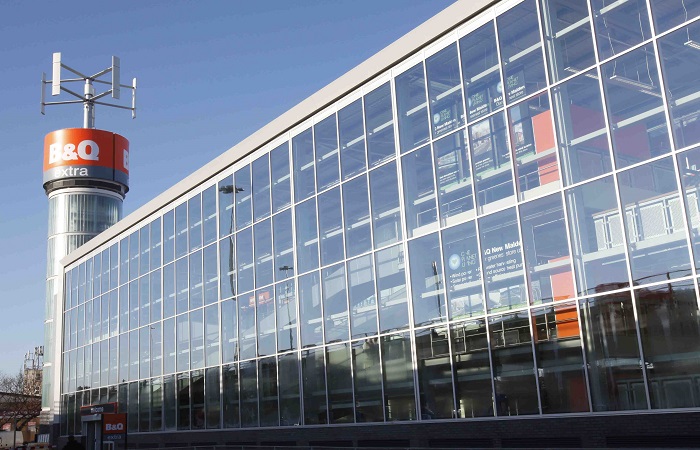
Retailer Kingfisher Group has reported a 9.6% mean gender pay gap for fixed hourly pay across its 34,000 UK employees as at 5 April 2017.
The organisation has reported its gender pay gap data across its four legal entities in line with the government’s gender pay gap reporting regulations and ahead of the private sector submission deadline of 4 April 2018. The entities Kingfisher has reported on include B&Q (pictured), Screwfix Direct, Kingfisher Information Technology Services and Kingfisher Corporate.
The gender pay gap reporting regulations require organisations with 250 or more employees to publish the difference between both the mean and median hourly rate of pay for male and female full-time employees; the difference between both the mean bonus pay and median bonus pay for male and female employees; the proportions of male and female employees who were awarded bonus pay; and the proportions of male and female full-time employees in the lower, lower middle, upper middle and upper quartile pay bands.
Kingfisher’s median gender pay gap for fixed hourly pay as at 5 April 2017 is 2.5%.
Its mean gender pay gap for bonuses paid in the year to 5 April 2017 is 33.2%, and the median gender pay gap for bonus payments is 0.1% in favour of female employees. Over this period, 62.3% of female employees received a bonus payment compared to 60.7% of male employees.
More than a third (37.3%) of employees in the highest pay quartile at Kingfisher are female, compared to 43.5% in the second quartile, 46.4% in the third quartile and 46.9% in the lowest pay quartile.
Kingfisher has attributed its gender pay gap to the fact that it has a lower level of female representation in senior roles across the business. Typically, senior positions attract higher pay and bonuess and the majority of these job roles are currently held by male employees.
To tackle its gender pay gap, Kingfisher is reviewing its employee benefits for parents, making more senior job roles open to flexible working and reduced hours opportunities, changing the way in which job adverts are written and introducing new programmes to help support women returning to work. In addition, as part of the organisation’s leadership development programmes, Kingfisher will help leaders to understand the importance and benefits of building inclusive teams, as well as understand the implications around unconscious bias. The organisation has also signed up to the 30% Club, which aims to achieve having a minimum of 30% of women on its board.
Kingfisher is also considering ways to analyse its gender pay gap across the organisation internationally, as well as exploring how it can investigate pay gaps across different ethnicities and other characteristics. This is to ensure that the organisation pro-actively manages its pay fairly and equitably.
Alastair Robertson, chief people officer at Kingfisher, said: “At Kingfisher, we are committed to being a fair and diverse employer and we are confident that we have the right reward processes in place to enable us to pay people fairly, irrespective of gender.
“We are proud of our strong representation of women at the most senior levels of our business but recognise that we have more to do. We have a clear plan in place to make sure we have better representation at all levels of our workforce, promote fairer hiring practices and improve career opportunities for all our [employees]”